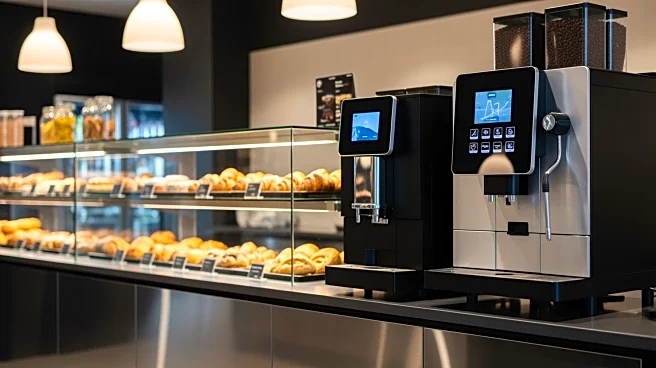What's Happening?
The National Association of Convenience Stores (NACS) President and CEO Henry Armour, along with his successor Frank Gleeson, emphasized the importance of foodservice in the future of convenience stores
during the 2025 NACS Show in Chicago. Gleeson highlighted that foodservice sales accounted for 28.7% of in-store sales in 2024, a significant increase from 11.9% in 2004. The convenience store industry is capturing market share from quick-service restaurants (QSRs) by leveraging their proximity to customers and offering food options throughout the day. Armour noted that convenience stores need to focus on competing with QSRs by improving menu execution and flexibility.
Why It's Important?
The shift towards foodservice in convenience stores represents a strategic move to capture more consumer spending and build customer loyalty. As convenience stores expand their food offerings, they can potentially increase foot traffic and sales, impacting the broader retail and foodservice industries. This trend could lead to increased competition with QSRs, prompting both sectors to innovate and improve their offerings. The success of this strategy could influence employment and investment in the convenience store sector, as businesses adapt to changing consumer preferences.
What's Next?
Convenience stores are expected to continue enhancing their foodservice capabilities, potentially leading to partnerships with food suppliers and technology providers to improve service delivery. As the industry evolves, there may be increased focus on marketing and customer engagement strategies to differentiate from QSRs. Stakeholders, including store owners and industry associations, will likely monitor consumer responses and adjust their approaches to maximize growth opportunities.
Beyond the Headlines
The emphasis on foodservice in convenience stores may lead to broader changes in urban planning and retail space utilization, as stores seek to optimize their locations for foodservice operations. Additionally, this trend could influence dietary habits and consumer health, as convenience stores offer more meal options.









